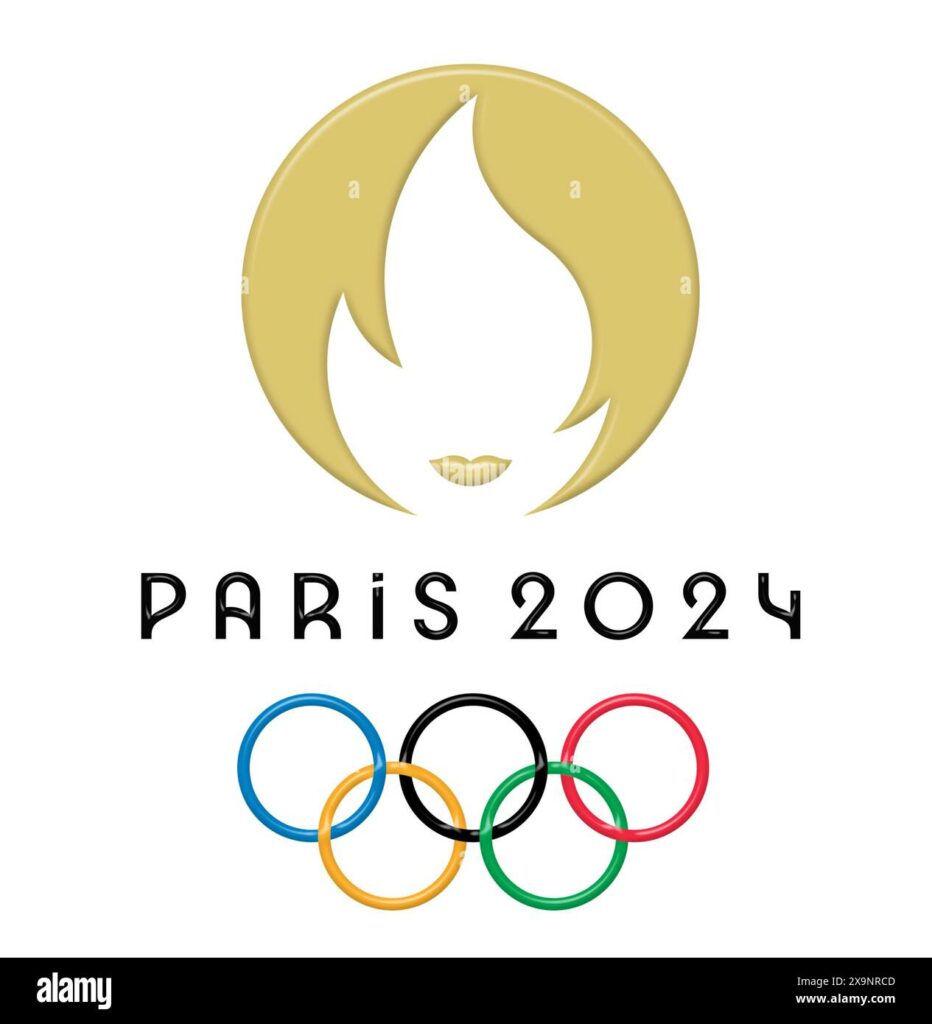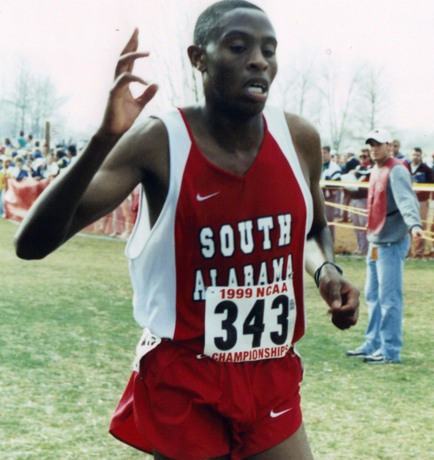
Paris 2024. I hope everyone has been enjoying the Olympics. I am in awe of the work ethic and success of Katie Ledecky.
I have no words for the athletic talent of Simone Biles in the vault. As a psychologist, I am doubly impressed with her ability to overcome her mental issues.
All of the gymnasts reminded me of my failures at gymnastics in junior high. My inability adds to my appreciation for their skills.
I do not remember mixed relays in previous Olympics. The 4x 400 mixed relay had an incredible finish by the Netherlands. Similarly, the 4 x 100 mixed swimming event was exciting—this time with an American victory.
The 110 meters was amazing to me because of the near finishes by all 8 runners. With my ties to golf, Scotty Schaeffler shooting a 62 and narrowly winning provided another highlight.
Of local interest, the discus had Francois Prinsloo from the University of South Alabama and swimming medalist Paige Madden is from Mobile.
Of personal interest, the Women’s High Jump demonstrated the great advancements in women’s sports. One hundred pounds and 62 years ago I tied for first in the National Junior College track championship. I still vividly remember my trail leg barely hitting the bar on my last miss at a little over 6’4”. The winning height for women this year was 6’7”.
The list could go on and on. I will be sorry to see the 2024 Olympics come to an end.
Our local on-line paper covered the Olympics but had their priorities in proper order – the lead stories were about preseason football camps. All’s well that ends with football in Alabama.

Distance runner. The Cole Hocker incredible victory in the 1500 meters reminded me of very some special memories I have of one particular distance runner. I wrote this essay about my time with him. I hope you find it of interest.
I have had the privilege of a long life. Over the years many people and events have influenced me. Most of the time, numerous interactions with the same people have left indelible marks on my life. I have been married for over 60 years. Numerous events with my wife, children and grandchildren have been powerful influences on who I am. Other times a solitary event and one person have had an enduring effect on my life. One day with David Kimani was such an event.
The fall of 1999, David Kimani arrived on the campus of the University of South Alabama. He landed a few days after school began. He quickly recovered the academic work he missed and started his daily routine of running eight miles before classes. His morning run was in addition to the afternoon workout with the track and cross-country team.
He left Nairobi, Kenya with a small satchel and a dopp kit. The airline misplaced his satchel. Undaunted he attended class and ran with a broad, infectious smile.
A tall, lean young man; he looked like a runner. He had fresh, happy eyes to go with his broad smile. Our paths did not cross until later in the fall. However, I frequently saw him during his morning run. His stride and demeanor were always relaxed.
On November 22, 1999, in Bloomington, Indiana David won the NCAA Division I Cross-Country Championship as a freshman. The victory was the first NCAA championship for the University of South Alabama, a watershed event for our young university.
Our paths crossed three days later. On November 25, Thanksgiving Day, I had two experiences involving David that left indelible marks on my heart. The experiences were because of our mutual relationship with Stuart Muirhead.
Stuart came to South Alabama on a soccer scholarship. When Men’s Soccer was discontinued, he was awarded a track scholarship. He ran the 800 meters.
Stuart was a psychology major who took five courses from me. I knew him well. He was from Durbin, South Africa. I assumed he would not be going home for Thanksgiving. I invited him to join my family for Thanksgiving dinner. He asked if it would be okay to bring two other members of the track team who were also from Africa. I assured him they would be welcome.
Stuart arrived with David and a second runner from Kenya. Our family welcomed them and we had an enjoyable Thanksgiving. During our conversation I learned neither of the Kenyans had ever driven a car.
We lived in a rural area. Our house was the end of a cul-de-sac. We had practically no traffic. I offered both Kenyans the opportunity to drive the mile from our house to a corner and back. Without hesitation, they took the opportunity.
As the day progressed, I asked David the questions I regularly asked international students. What has been the most difficult experience during your time in the United States? What has been your best experience?
David’s answered the latter question with a big smile and three words. “Driving your car.”
The words humbled me. Three days earlier he won a national championship. Driving the car was his best experience. I had been driving since I was 13 years old. I owned my own car when I was 16.
His response made me reflect on the many privileges I have had during my lifetime. Privileges I often take for granted. The incident was neither the first time nor the last time I have been humbled to realize my vast privileges but the juxtaposition to winning a national championship was a formative event, a great reminder and lasting memory.
In order to understand the second experience, the cultures of the three students must be considered. Stuart was a white from South Africa. Apartheid was the policy in South Africa while Stuart was maturing. The two runners from Kenya were both Black. Most people would assume there the white South African and the two Blacks would have difficulties because of apartheid.
At one point in the evening when Stu and I were alone, he asked me if I noticed anything about how the two Blacks related to each other. He said they got along on the surface because both were Kenyans in a foreign country and teammates. However, they were very wary of each other. The underlying tension hinder closeness. The tension was because they were from separate tribes and very different cultures.
David and Stuart were very close. Although Stuart was raised under apartheid, he was comfortable around Blacks and treated them as equals. He spoke Zulu. David was comfortable around whites,
I have related the story to many people. I have asked them to give their honest predictions about the personal relationships between two Kenyans and a white South African. The overwhelming majority offer racism as their reason for assuming there would be tension between the Black Kenyans and the white South African. No one suggested tribalism between the two Kenyans
The second experience made me explore the problem of prejudice about tribal culture. I was ignorant of the extent of the problem of tribal prejudice in Africa. Conflicts between Zulu and Xhosa, Hutu and Tutsi, and other tribes have led to thousands of deaths in my lifetime.
When I reflected on the experience, I realized the extensive power of group prejudice. I began to broadened my understanding of prejudice. For example, I think of gang violence in America and its deadly consequences as conflicts similar to tribal violence.
Many factors play roles in the wide variety of group conflicts. Colonialism and economic conditions are just two. Whatever the factors have been, group prejudice has caused deadly consequences. I appreciate that my experience with David broadened my understanding of the importance of group prejudice.
I did not have another Thanksgiving with David because the coach who recruited David was hired by the University of Alabama. David followed him to Alabama and had an outstanding career. At any point in his college career, he could have signed a professional contract and made enough money to move his family out of poverty.
A testament to David’s outstanding character was his determination to stay in school. He wanted to earn a college degree as an example for the children in the poverty-stricken community in which he was raised. He assumed, as we all did, he would have several years to earn money after graduation.
The week before graduation he had an agent, a six-figure guaranteed sala and was ready to graduate. At lunch, he filled his tray at the university cafeteria. When he turned to go to his table, he collapsed and died.
Autopsies were unable to establish the exact cause. Unfortunately, the death of fit runners happens more often than I realized.
Two years later, our daughter was killed in a tragic accident. Our friends held an annual golf tournament in her honor. Stuart suggested we add a run to honor David.
David’s parents attended the event. The fraternity of parents who have lost a child has a terrible initiation fee. David’s parents were of course devastated by the loss of their son and the opportunity to get out of poverty. His youth, plus his dream of a college degree, deepened my appreciation for their loss. I did not have words but they were buoyed by our shared experience and the presence of the friends who thought so highly of their son.
One day with one extraordinary young man created memories and lessons I will not forget. The memories are good reasons to be thankful every day, not just one day a year.
This and That
A world without Gouda cheese.
https://www.nytimes.com/2024/08/01/world/europe/netherlands-gouda-climate.html
Good News
In the days of our divided nation, I need reminders of goodness. I encourage you to take a few moments and be reminded—we are in this together.
First Responders
EMS Heroes Go Above And Beyond For Grieving Man After Accident (sunnyskyz.com)
https://www.sunnyskyz.com/good-news/5493/Local-Law-Enforcement-Honors-Retired-Deputy-Battling-Cancer
Good Samaritans
Miracle At Sea: Dog Rescued Miles From Shore And Reunited With Owners (sunnyskyz.com)
Bus Driver Gives Passenger The Shoes Off Her Feet (sunnyskyz.com)
Peace
Jerry
0 Comments